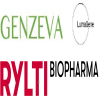Biotechnology companies are often created similarly. A scientific idea takes root within a startup that’s nurtured and shaped by experienced venture capital firms.
That blueprint has guided hundreds of drugmaking startups in the last decade, some of which have gone on to bring new medicines to market. But it’s also not the only way to build a biotech, as Alkeus Pharmaceuticals has shown.
Alkeus on Monday said it has raised $150 million and named Josh Boger, a pioneering biotech executive and founder of Vertex Pharmaceuticals, as its executive chairman.
The funding will support development of a drug for the genetic eye condition Stargardt disease that Boger, as well as Alkeus CEO and founder Leonide Saad, claim has sufficient data to support a Food and Drug Administration approval. It is the latest step in an unconventional journey for Saad and Boger, who met more than a decade ago at a startup competition.
“I’m seriously committed here,” said Boger, who hasn’t joined or advised any other biotech companies since leaving Vertex’s board in 2017. “I really thought if I don't do this, I'm wasting the knowledge that I gained in the past.”
Unlike most biotech startups, Alkeus has been run by one person for most of its existence. Saad, a former venture capitalist and consultant, in 2010 licensed a drug invented by former Columbia University professor Ilyas Washington and formed Alkeus around it.
Unknown to Saad, Boger, one of the industry’s best-known drug hunters, had his eye on the medicine as well. He had read preclinical research conducted by Washington and thought at the time, “if it works, it’s the most perfect drug I’ve ever seen,” Boger recalled.
In Stargardt, a genetic defect changes how the body processes vitamin A, which is used by the body to make retinal cells. That defect causes yellowish clumps to form in the eyes, destroying cells and triggering progressive vision loss. There are no available treatments, though a number of other experimental drugs are in clinical development.
Washington discovered that a chemical process involving vitamin A was causing those clumps to form. So he invented a form of vitamin A altered in such a way that the chemical reaction wouldn’t occur, hoping that it might slow disease progression if administered as a drug.
“It’s the most elegant possible way for a drug” to work, Boger said. The treatment blocks a chemical reaction, not a biologic target like many other medicines, and is “perceived” by the body as vitamin A rather than a foreign substance, he said.
“As a scientist, I'm aware of using adjectives for science, and especially hyperbole,” Boger said. But this “has objective facts behind it.”
Saad made the drug, now known as ALK-001 or gildeuretinol, his mission. He used his own money to fund Alkeus until he raised a $2 million Series A in 2011. Alkeus then won the MassChallenge, a biotech startup competition in Boston which Boger judged. Saad used that opportunity to convince Boger to become Alkeus’ executive chairman in 2012, three years after he’d retired as Vertex’s CEO.
Boger’s stint on the board lasted until 2015, when a Phase 2 clinical trial began and Boger felt there was nothing for him to do but “wait for the results.”
In the meantime, Saad ran Alkeus himself. He negotiated deals with manufacturing contractors and physicians at clinical testing sites. He secured grants from the FDA and National Institutes of Health. He said he was reluctant to relinquish control, so he largely stayed away from venture funding.
With about $6 million in total funding, Saad got ALK-001 through a placebo-controlled Phase 2 trial, the results of which were presented at a major medical meeting last year and showed the drug may slow retinal damage. The FDA granted the treatment a Breakthrough Therapy designation, a tool used to guide development and speed reviews.

The process involved “essentially nonstop work with no vacations, no personal life,” and no income for several years, Saad said. “I wouldn’t be able to do it again.”
He finally turned to outside investors for more significant funding, putting together the $150 million Series B round in a tough biotech market. Bain Life Sciences led the round, and was joined by three other venture firms.
“We really need to grow this company to be able to launch this drug,” he said.
That’s where Boger, the onetime Merck chemist who built Vertex and took it public in 1991, is coming back in. He’s rejoining Alkeus to help with FDA discussions and plan for a commercial launch. The two expect to file an approval application next year.
“A significant percentage of drugs with Breakthrough Therapy designations have been approved off of one Phase 2 trial,” Boger said.
The company will soon grow to 5 employees, and potentially expand to 50 or more once an application is filed, according to Saad. Alkeus also has a Phase 3 trial underway in geographic atrophy, another type of vision loss, but testing there will take longer, as a second study would likely be required for approval.
All of that appealed to Boger, who has waved off positions with emerging biotech companies year after year.
“I’m actually not a startup person,” he said. But with Alkeus, he added, “I could see a clear path to patients, and now that’s even clearer with data.”














